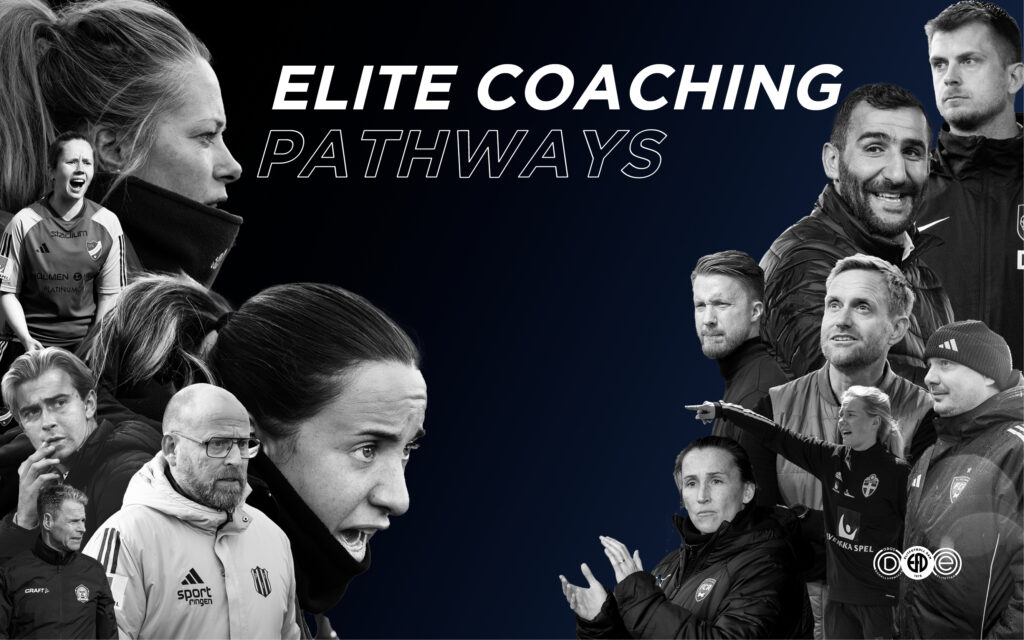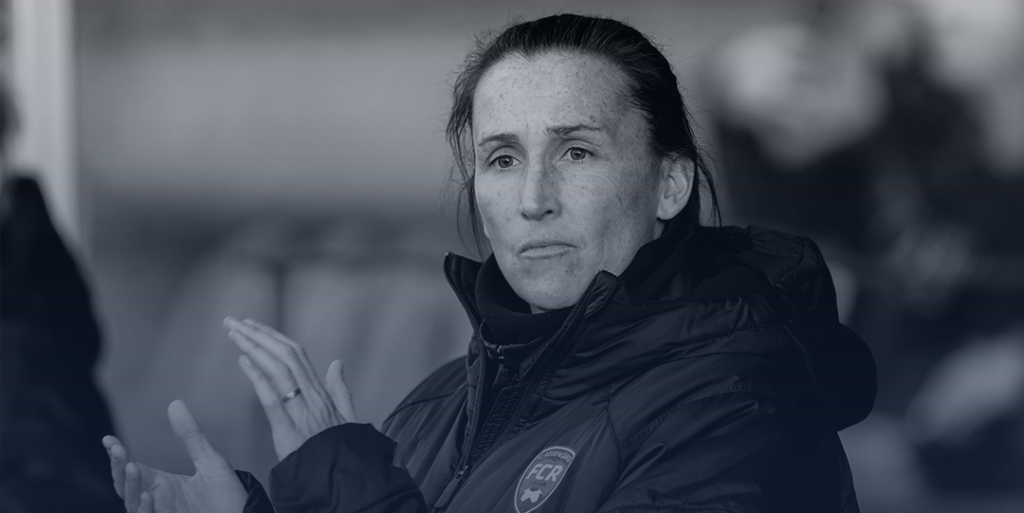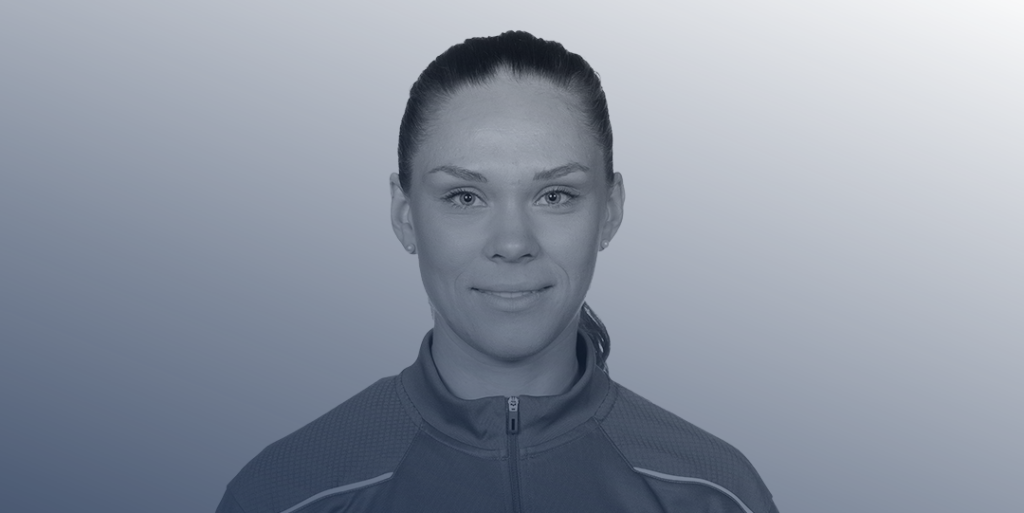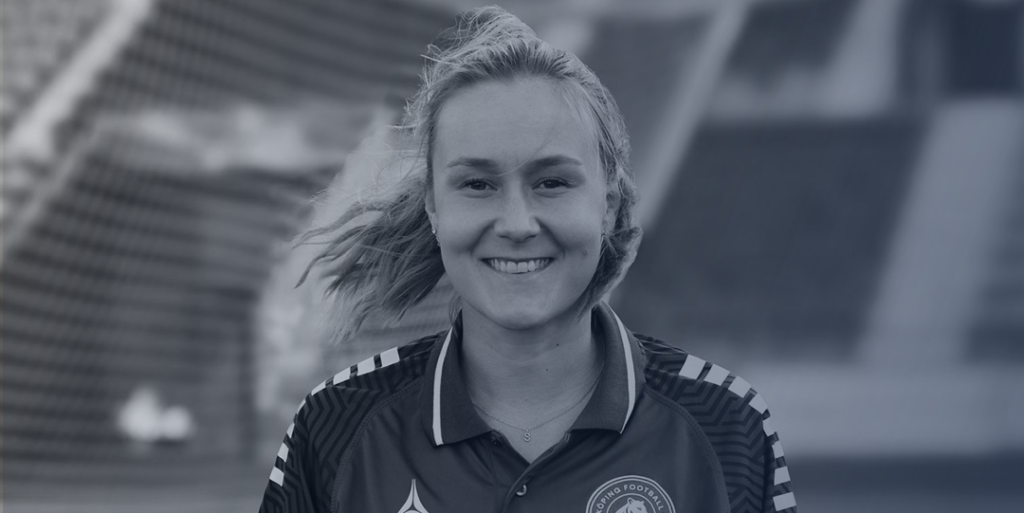
Elitfotboll Dam has launched an exciting new initiative to increase the number of elite coaches in women’s football. This initiative aims to promote the education and development of coaches in order to enhance the quality and growth of women’s football at the elite level.
Despite significant growth in women’s and girls’ football, the development of female elite coaches has not followed the same trajectory. With this initiative, Elitfotboll Dam, together with Akea, Sundström Safety, EPOS, and GameInsight, aims to create a long-term and sustainable change.
Sundström Safety is behind the EPOS network and has already made great strides towards gender equality by working to bring more female elite coaches to the forefront. The company is currently a partner to many clubs and specialized sports federations, and now also to Elitfotboll Dam.
There is a need for more female role models in leadership positions.
One challenge faced by girls’ and women’s football is that many players quit between the ages of 16-20, according to a study conducted by the Swedish Football Association (SvFF). One of the reasons cited is the lack of female role models in leadership positions.
Successful female coaches have a direct impact on the success of women’s football.
International football shows that the most successful women’s national teams over the past two decades have been led by female head coaches. In fact, 15 of the last 18 winners of the Olympics, World Cup, and European Championship have had a female head coach. A clear winning formula, worth investing in.
Examples of successful female coaches include Christina Theune and Silvia Neid, who won seven titles with Germany; April Heinrichs, Pia Sundhage, and Jill Ellis, who brought home five titles to the USA; Sarina Wiegman, who won two European Championships with both the Netherlands and England and was recently in the World Cup final; and Bev Priestman, who coached Canada to Olympic gold in Tokyo two years ago, defeating Sweden in the final after a penalty shoot-out.
Interview
We meet Casey Mattsson, a passionate coach and teacher, who shares her journey in football and her values as a coach. Through reflection and a strong desire to grow, both as a coach and as a person, Casey talks about her drive and the goals that keep her motivated – both in the short and long term.
Casey Mattsson, 32 years old and living in Västerås with her two children, has a background as both a teacher and a football coach. Her coaching career began at Djurgården, but it was through an internship at a football club that she discovered her passion for developing players. For Casey, coaching is about more than just technical skills – it’s about working with people and helping them grow both on and off the field.
In the film, Casey shares her thoughts on being a coach who supports young players, the importance of reflection and feedback, and how she sets goals to keep developing. Her long-term ambitions include working in the OBOS Damallsvenskan and taking on international roles. As a coach, she strives to surround herself with competent colleagues who challenge and inspire her.
Today, Casey’s life looks different. She has made the decision to focus on teaching full-time for now, until she can find a balance in her life that allows for a return to elite coaching.
– I feel that balancing everything in life is a challenge right now, so I made the decision to resign and focus solely on my role as a teacher. Of course, I want to continue contributing to football in the future, but I’m in no rush to decide when or where.
We will follow Casey to see if and when her coaching career will once again become a part of her life.
2025-01-07
Interview

– It’s about seeing the person before the player, it’s important to get to know them as people…
She experienced both joy and sorrow during her active career. Today football is still a big part of Shannon Lynn’s life and she enjoys the coaching role she has been given at FC Rosengård.
– Welcoming the challenges and striving to improve are great parts of this job, she says.
Becoming a coach after her active career was never something she really aspired to. Not because others didn’t see her leadership qualities – the problem was more her own doubts.
– To be honest, I really didn’t think I would become a coach and I now know that it was mostly to do with my confidence. Even though I played at a high level, I wondered if I had the capability to pass on my knowledge and experience to other professional goalkeepers, Shannon Lynn says.
She grew up in Canada, played in the USA during her school days, became a Scotland international and represented Chelsea in England before moving to Sweden in 2014. Ten years later, she’s still here, although two years ago she put her active career behind her.
– As I got closer to retirement, I started to get more opportunities to coach, so I thought I should give it a try. Once I started and was working with different levels of goalkeepers, I realized that it was something I really enjoyed. And I was pleasantly surprised that the goalkeepers seemed to respect me as a person and my experience as a goalkeeper.
– After over ten years as a player for the Scotland national team, I was lucky enough to get asked to do some coaching with the Scotland U19 goalkeepers. Then upon my retirement from my playing career, I got the dream opportunity to coach the goalkeepers at FC Rosengård, which is where I am today. I am learning so much every day and I feel incredibly lucky to work with the players and staff here!
While many women find it difficult to combine the desire to become a mother with being a coach at top level, Lynn has had better experiences and is grateful for the support she has received from her club.
– I got a dream job when I was five weeks pregnant. I gave birth to our daughter in July last year and I was lucky enough to feel physically okay during my pregnancy, so I worked until a few days before she was born.
– Now this is where I must give credit to Rosengård as a club, but especially to Therese (Sjögran, sports director for FC Rosengård) for making the process after her birth as smooth as possible. Ofcourse this came with challenges – on my end mostly. I wanted to be two places at once. You know football, no day is the same, and I was really missing it. I went back to work about two months after Kyah was born and the staff and players were fantastic.
Lynn’s wife Sandra, who has played a handful of games for the Swedish national team plays for one of FC Rosengård’s rivals in OBOS Damallsvenskan, Vittsjö GIK. When this ongoing season started the puzzle in schedules was too difficult to make work so Lynn went on maternity leave from February to June.
– As much as I missed my job, that time I got to spend with Kyah was irreplaceable and I am glad I work at a club that understood how important that was, she says.
Last season was a disappointment for FC Rosengård, who missed out on a top four finish for the first time since the current league system was introduced in 1988. This season the club can look back on a spotless performance at the time of writing. Rosengård has won all 18 games, scored 78 goals and conceded just five.
– The season has been exceptional so far for sure and from the outside looking in, wow! But also, from the inside looking at it face on, wow! I give so much credit to Joel (Kjetselberg, coach) and the fantastic work he has done with this group, and of course the rest of the staff and players, who have worked incredibly hard to get back here again, but have also continued to stay humble. We haven’t won anything yet, there is still work to be done and we are ready for it, Lynn says.
What qualities do you consider most important to be a successful coach?
– I think it’s about seeing the person before the player. It’s important to get to know them as people, to learn about them as a whole, while learning about their strengths and things that they can improve as goalkeepers. I think if you spend time doing that, you create an environment that everyone wants to be a part of, which I think will help them to improve and develop in. I want to create an environment that the goalkeepers feel comfortable and supported, while also being challenged.
– I think, especially as a goalkeeper coach that it’s important to take the time to know and understand how the head coach wants us to play, so that you can help develop the goalkeeper to see the whole picture. I think this comes from having a good relationship with the other coaches and building connections between us. I think it’s important to ask questions, be open to learn, and wanting to improve.
What challenges do you usually face in your work as a coach, and how do you deal with them?
– I think a lot of parts of coaching can be challenging, but I think that can also be the great part of this job. Welcoming the challenges and striving to improve. Every player you work with is different, and every game you play is different. The challenge is how you can stick to what you believe in, but also be open to changes in the process.
– It can for sure be a challenge to navigate how to deal with the players who are not playing. Not in a bad way, but I know how difficult that it can be sometimes. So, I think it is really crucial to make every player feel as important and as prepared as you can. Of course, sometimes that can be quite difficult to do, but I think the important thing is to acknowledge all players and be open for constructive conversations. Then it becomes the players responsibility on how they take that in.
What is your goal as a coach?
– My goal is to continue to learn and to grow in this job. I am pretty early in my coaching career so I think it’s important for me to try and take in as much as I can from the great people I am working with.
What is your vision for yourself and for women’s football in general?
– The vision for myself is to hopefully continue to work in football. It’s a short answer but I have a hard time seeing ahead of ’right now’. Of course, my vision is to continue to improve in this field, and hopefully become better at my job. I want to enjoy every moment I can because I know how difficult this job can be.
– As for women’s football, the growth has been pretty amazing the last few years, and I’d like to see it continue to grow. For women to have better opportunities, better finances, more coverage, more publicity, etc, so that this can be a great career for women right now but also for their future.
What needs to be done to bring more women coaches to the elite level?
– I think this is a difficult question, but if I could say something about it, can we try to get more girls and women to start coaching at a younger age? For instance, someone who maybe isn’t going to make it further in their playing career at a high level but has aspirations and a desire to stay in the game. This is where I think we can improve. I’m not quite sure how to do that, but it’s just a thought.
A few years ago, Lynn opened up about how, after losing her partner, she suffered from depression. Looking back on it today, she sees how important football was, how it gave her a safe place in life.
– I say this genuinely that I believe football saved me. When I lost my partner at the age of 22, I really thought that was it for me, that all of my positivity and joy was sucked away. But, when it came to football, that was another love of my life and something that has always been an outlet for me. Therefore, it kept me in routines and kept me from going as far down in the black hole as I could have been.
– I’m not naive to say that I haven’t had some really difficult times in football, but it gave me life, and somehow it could pull me up, at least for a few hours a day back then.
2024-11-18
Interview

– All players need to be involved to achieve our goals
– I spent hours on Youtube watching Barcelona and Liverpool coaches, trying to learn from the clubs as well as my father and grandfather. I looked up to them because they were so passionate about football and I wanted to go the same way, says Lovisa Lundqvist.
Inspired by both her father and grandfather, Lovisa Lundqvist was only 13 years old when she decided to become a football coach. Today, she specializes in physical training at both the OBOS Damallsvenskan level and the national team level.
Lovisa Lundqvist didn’t have a prominent playing career. She spent her twenties on the field with the third league team, Sollentuna, before finishing her career at the fourth-tier club, Djursholms FC, in 2021. After that, she retired from playing.
However, Lovisa Lundqvist didn’t plan to leave football entirely. By the age of 21, she already had several years of coaching experience. Growing up in Rosersbergs IK, it was expected that everyone would contribute.
– It’s a club where everyone works non-profit, and both my dad and grandfather were coaches for women’s and men’s teams. I started my football education very early and observed everything and everyone in my environment. While playing at Rosersberg, I worked with various coaches and gradually developed a personal set of leadership qualities that I valued to varying degrees.
During high school, she played for Sollentuna FK, where she naturally began helping with the club’s girls’ teams once a week
– I gained numerous new coaching colleagues to observe and learn from. Soon, I felt a strong desire to make a more personal contribution to players’ development. This led me to work for Molinatti Football School, founded by Thibaut Molinatti, who is now a co-owner of the Skills Academy. There, I conducted individual training sessions from early morning before sunrise to late evening, every day of the week, for boys and girls aged 10 to 30 from various small and large clubs in Stockholm.
She pursued further education in coaching, specializing in football, at the School of Gymnastics and Sports (GIH). In 2020, she also obtained UEFA’s B license.
– In the training planning course taught by Helena Andersson at GIH, I fully realized something I had long considered. I am passionate about incorporating physical fitness into football training. Whether in group or individual sessions, I have consistently integrated speed and strength into the exercises, often subconsciously, says Lundqvist.
At the same time, she was offered the position of assistant coach for the IF BP women under 19 teams. This role presented new challenges and opportunities for her coaching development, and she played a significant role in initiating a successful period for the girls’ academy. Additionally, thanks to financial support from Elitfotboll Dam for training female coaches, she was able to participate in the Swedish Football Association’s first edition of Tränarutbildning Fotbollsfys (a football fitness coach course).
– I was eager to dive deeper into the concepts I had explored during my courses at GIH and my time at BP, where I experimented with space, time intervalls, and player numbers to enhance various physical skills. Both the course participants and the trainers were exceptionally skilled.
While attending the course, Lovisa Lundqvist received a call from former national team player Sara Thunebro, who was overseeing a project on training load analysis using GPS for the federation. Lundqvist was then given the opportunity to serve as a physical trainer at a girls’ national team camp in the summer of 2021.
– This opportunity was beyond my wildest dreams. Working alongside highly skilled coaches like Caroline Sjöblom, Carola Söberg, and Maria Busk Madland was an invaluable experience. Additionally, having the chance to coach some of Sweden’s top players born in 2003 and 2004 was absolutely fantastic for me.
– I gained so much from that camp, and subsequently, I was trusted and honored to work with the 2005 team. Little did I know my first camp with them would mark the beginning of something truly significant. Being surrounded by doctors and physiotherapists who are passionate about sports medicine and the long-term education of our youth was incredible. This applies to all national teams, from the U23s to the U17s, including a European Championship we hosted, which I had the privilege of being involved in.
Lundqvist thrives in BP, advancing her career from being in charge of physical training at the academy to now fulfilling the same role for the women’s team competing in the OBOS Damallsvenskan. Concurrently, she continues to enhance her education and is set to start her third year in the coaching program at GIH this fall.
What qualities do you consider most crucial to being a successful coach?
– As a football fitness coach, it is important to focus very much on relationships, to confirm competence and distribute responsibility within an already very experienced group. In football, all players need to be involved if we are to achieve our goals, it’s not a player who individually makes the team win or lose a match. In elite football there is an incredible focus on results, something I think is important but must not be decisive or stand in the way of long-term development of our youngest players.
– I also think it is an advantage to have a high self-awareness as a coach. To know their strengths and weaknesses and to display this transparent image of themselves as the collective always needs to be put before self-interest.
What challenges do you usually face in your work as a coach, and how do you deal with them?
– Being relatively young, I often face the challenge of others questioning my competence and experience. This doubt also feeds into self-criticism among young female coaches, who may hesitate to assert themselves in a field traditionally dominated by men. It’s crucial to acknowledge that our journey as coaches is never complete; there is always more to accomplish and learn.
– I manage this challenge by setting clearer boundaries between work and personal life, and by surrounding myself with people who energize rather than drain me.
What is your goal as a coach?
– Helping players who are eager to advance their football skills by providing the right tools. It’s always up to the player but if I can play a small, small part in helping players physically, no one will be happier than me. As the physical demands in women’s football continue to rise, my goal for BP—a team that has struggled in recent seasons—is to keep pace with this progression.
What is your vision for yourself and for women’s football in general?
– That I will become a leading expert in my field of physical training and sports performance. In this way, I can perhaps at the same time be instrumental in ensuring that women get the same conditions for sports as men. Internationally, women’s football teams benefit from extensive medical teams around them. I envision the same for Sweden’s women’s football, a vision that is gradually taking shape in clubs like BK Häcken. They have hired a head of performance and assembled a team of football fitness coaches, each specializing in different areas, all collaborating for the benefit of the players.
What needs to be done to bring out more female coaches at the elite level?
– I believe the initiative of Elitfotboll Dam in the Elite Coaching Pathways and the Swedish Football Association’s ’tränarlyftet’ project, which encourages more women to pursue the UEFA B course, is crucial. But to reach the elite level often requires more than that. The responsibility lies with the Swedish Football Association and their training programs to ensure that more women enroll in the UEFA A course to advance their careers. Additionally, Swedish clubs need to actively encourage female participation in all aspects of elite football, whether as coaches, equipment managers, event coordinators, or board members
2024-08-29
Interview

– Walking away wasn’t an option
After nine years in OBOS Damallsvenskan and Elitettan, representing every Swedish youth national team, and winning the U19 European Championship, Matilda Haglund decided last fall to retire from her goalkeeper career. However, she was not ready to leave elite football behind entirely.
– Becoming a coach allows me to give back and share my experience with young, talented goalkeepers, says Haglund, who is currently goalkeeping coach for Lidköpings FK.
Matilda Haglund’s football dreams began in the small village of Järpås, 20 kilometers outside Lidköping. Through talent, training, and determination, she reached the top. Despite her career being cut short last autumn after four knee surgeries, Haglund has notable achievements to her name. Including winning the Swedish Championship with Linköpings FC and a European Championship with the Swedish U19 national team.
Since the age of twelve, there has only differed one letter in the first part of the clubs she represented, but the joy and pride of football has been just as great wherever she has been.
Starting at her childhood club, she moved to Lidköpings IF, then played five seasons with Linköpings FC in the OBOS Damallsvenskan from 2016 to 2020. She returned in 2021 to Västergötland and Lidköpings FK, which was renamed following a merger. Haglund has also played for all Swedish youth national teams, from U15 to U23.
Although she is new to coaching, she has a lot of experience from her active career to guide the next generation of goalkeepers.
– I wasn’t ready to leave football behind—it’s been a big part of my life. Simply walking away wasn’t an option, I love the sport to much. Additionally, it’s also about giving back to both Lidköping FK and women’s Swedish football.
In her initial period as coach, Haglund has been focusing on adapting to her new role, applying her unique perspective on goalkeeping through the way she organizes and conducts training sessions.
What qualities do you consider most crucial to being a successful coach?
– It’s probably a mix of many different qualities. Above all, I would say, a successful coach is someone who sees the whole person and not just the footballer, has a tactical understanding and technical competence as well as being responsive, committed, communicative, goal-oriented and constantly wants to develop herself and her surroundings.
What challenges have you faced in your coaching role and how do you deal with them?
– I coach goalkeepers, they have a vulnerable position with a lot of mental pressure where mistakes can lead to goals for the opponents. Dealing with mental pressure is therefore a challenge I deal with by acting from a psychological perspective and regularly giving positive feedback to strengthen the goalkeepers.
– I also feel that I may encounter challenges related to each goalkeeper’s playing time. To deal with this, I want to have an open communication around how the goalkeepers improve their chances of playing time.
What are your goals as a coach?
– I aim to continuously improve the goalkeepers I coach, but also myself. By fostering an environment of curiosity and active involvement, I strive to help the goalkeepers achieve their individual goals and also the goals for the team. Personally, I aspire to represent Sweden as a goalkeeping coach in the future.
Haglund envisions a future for Swedish women’s football characterized by equal recognition, resources, and opportunities as men’s football, where equality and inclusion are the norm.
What needs to be done to bring out more female coaches at the elite level?
– It’s about changing structures and attitudes in sport, to build a more inclusive and equal future. For example, it could be about working with education and development through mentoring consisting of female coaches or creating networks for female coaches.
– It can also be about working with role models and increasing the visibility of female coaches or changing the working conditions so it’s easier to combine the coaching profession with family life. Football associations and clubs need to work more actively to allocate resources to promote female leadership and support the development of female coaches, so it’s positive that Elitfotboll Dam together with partners has now launched the project Elite coaching pathways.
2024-06-25
Interview

– In every meeting with my players I want to learn something new
When the team’s coach unexpectedly quit, player Fanny Måsabacka had to step in for the remaining training sessions of the season – and got hooked right away. Today she is head coach of Linköpings FC’s W17 team, assistant coach of the club’s team in OBOS Damallsvenskan and coach for Östergötland’s F08 team.
– One of my dreams is to have the opportunity to work as a full-time football coach someday, she says.
Like Åland’s most renowned footballer, Daniel Sjölund, Fanny Måsabacka also journeyed from IFK Mariehamn to Östergötland. Reaching OBOS Damallsvenskan was not her initial goal; she relocated to Linköping to pursue her studies to become a high school teacher and played football for LiU AIF in the third division.
In the fall of 2021, the team unexpectedly found itself without a coach, with no one available to fill the role.
– I stepped in and conducted the remaining training sessions for that year, after which the club’s sports directors asked if I wanted to become the playing coach for the following season. I believe I was approached because I had consistently taken significant responsibility within the club during my playing time. Additionally, I frequently offered my views on training exercises and methodologies
Måsabacka accepted the offer and simultaneously hung up her boots to fully commit to her new role.
– When I decided to try out coaching, I wanted to give it my all. Two and a half years later, I am truly grateful for the opportunity, as it has become the most enjoyable part of my life.
In 2022, Måsabacka enrolled in football coaching courses. Within a year, she was offered the role of coach for Östergötland’s F08 team, and by last autumn, she had earned her UEFA B license. This season marked a significant advancement in her career as she took on the role of head coach for the F17 team at Linköpings FC. Additionally, she has been assisting with the club’s senior team in the OBOS Damallsvenskan and serves as a coach educator in the county.
– My goal as a coach is that I every day, every training and in every meeting with my players will learn something new and develop myself. I am passionate about my role as a coach and want to be as good as possible. My dream is that one day I will have the opportunity to work as a full-time football coach.
What qualities do you consider most crucial to being a successful coach?
– Oh, that’s a tough question. Good football skills along with analytical and tactical abilities are crucial for making realistic assessments to develop players, create match-like practices, and win points in matches. I believe that a successful coach needs to be clear and have authority in their leadership in order to successfully convey the way of working, roles and the tactical aspects from theory to reality. It is also important to combine clarity with humility. I think it’s important to critically examine yourself in order to develop as a coach.
Through succeeding in building positive relationships between players and also between coaches and players so the players will feel safe both on and off the pitch is important for both individual and collective development, she believes.
– If you manage to build trust and good relationships, it’s easier to include players in working methods and also in evaluation. It’s also a prerequisite for players to be able to receive constructive feedback and become involved. Perceptiveness is an important quality in building relationships as well as to see the individual and not just the player.
– Finally, commitment is a key characteristic. Create commitment to engage players in their own development and in the team’s processes. Encourage them to seek their own solutions, support each other, and enjoy their time together.
What challenges do you usually face in your work as a coach and how do you deal with them?
– A big challenge is the time aspect. I wish I had more time for each player individually. One challenge is to coach all players in their role and in the actions the player has as areas of development. It is important to be close to the players and coach them in their roles on the field. I need to plan carefully to provide all players with feedback relevant to situations they will encounter during matches. It’s also important, and sometimes challenging, that practices, whether for skill or matches, are as similar to match situations as possible.
What is your vision for yourself and for women’s football in general?
– I want women’s football to develop and take up more and more space every day. There is a lot going on today, which is fantastic, and it’s exciting to be part of this journey. I want girls to have the opportunity to play football on equal terms with boys. Being involved in coaching girls in football is both enjoyable and enriching.
What needs to be done to bring out more female coaches at the elite level?
– It needs to be invested in female leaders and above all it probably needs attention. It’s important that there are both female and male role models for our boys and girls who play football. The importance of educating leaders should probably not be underestimated, it is important that education is offered to develop more coaches.
The interview was created through the project Elite Coaching Pathway in collaboration with EPOS, Sundström Safety, Akea and Game Insight.
2024-06-12





